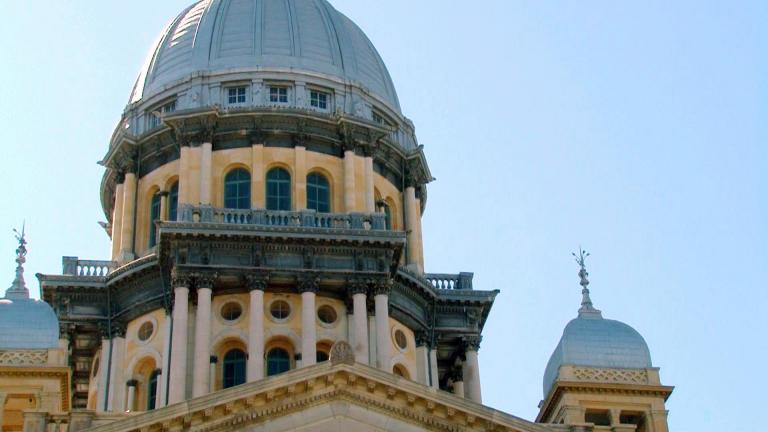July 1 marks the start of Illinois’ new fiscal year, which ushers in a bushel of new laws.
Here are a handful that may come in handy:
Minimum wage increase
Illinois is on the path to reaching a statewide $15 minimum wage in 2025 by going up a dollar a year starting in January. The wage floor increased this January, from $8.25 to $9.25, but also bumped up midway through 2020: As of July 1, the minimum wage in Illinois is $10.
Low-wage earners will no doubt appreciate a boost in their paychecks, but the Illinois Retail Merchants Association’s Rob Karr said that’s not so for the businesses that employ them. Karr said it was always going to be tough on employers, but it’s especially difficult during a pandemic that forced shops to restrict their hours — or even completely close their doors — for weeks or months.
“It’s a real kick in the teeth, frankly,” Karr said. “We’re dealing with record unemployment, we’re dealing with retailers who are frankly hanging on. If you are a retailer like an apparel shop, for example, occupation – 50% occupancy – is not viable over the long term. We’re talking a lifeline to hopefully get us to the net phase, it’s buying time … how anyone expects us to get back on our feet? Rehire? Do any of those things that they would like to see us do, when they’re imposing these kind of artificial costs? That’s a real question.”
Tougher driving penalties
It’s already illegal to text or use another electric device while behind the wheel, but a new law ups the penalty if you’re texting and seriously injure someone. That will now automatically lead to a $1,000 fine and minimum yearlong driver’s license suspension.
Drivers will also lose their license for a year should they seriously injury someone in a school zone or crosswalk. “Sec. (Jesse) White always says, ‘If you’re driving a car, focus on the task at hand. Drive it.’ If you have to send a text message or read a text message, it can wait. Don’t put someone’s life in jeopardy, don’t put your own in jeopardy,” said secretary of state spokesman Henry Haupt.
‘License to work’
You won’t, however, lose your license anymore because of non-moving violations tied to wealth rather than safety. The Chicago Jobs Council estimates that 75,000 Illinois residents will have their driving records cleared as a result of Illinois ending a practice of suspending drivers of their licenses for racking up parking tickets and not paying them.
“It sort of creates a Catch-22,” said the CJC’s Mari Castaldi. “Many jobs require driver’s license even if they’re not driving jobs. And so inability to pay tickets can lead to loss of license, which makes it hard to gain access to good-paying employment, which then in turn makes it hard to pay tickets, and so the cycle kind of continues and people can end up in sort of a debt spiral and really face serious barriers to employment as a result.”
Castaldi said the coalition isn’t done: Next, it will work to stop Illinois from suspending driver’s licenses for other debt collection reasons, including failure to pay child support.
New curricula in schools
Illinois plans for students to be back in the classroom this fall after moving to remote learning in the spring due to the coronavirus. Middle school students will have a new course: A new state law, sponsored by Sen. Jacqueline Collins, D-Chicago, mandates they be taught civics.
“Civic education is really about enlightenment, empowerment, and engagement. And we see that now, I think, with the Black Lives Matter movement. I believe that our children should be exposed to the role that they play, and that they have agency,” Collins said.
Another new law requires that students be taught the history, contributions and accomplishments of lesbian, gay, bisexual and transgender individuals.
Spending plan for fiscal year 2021
A new fiscal year means a new state budget.
Illinois’ spending plan for the fiscal year that runs through June 30, 2021 closely matches the budget that’s been in place this past year … except that Illinois revenues have taken a $1 billion-plus beating due to the coronavirus.
For now, the budget is balanced on plans to take advantage of a federal borrowing program, and the hope that Congress will come through with funding for fiscally beleaguered local and state governments across the U.S.
Follow Amanda Vinicky on Twitter: @AmandaVinicky






